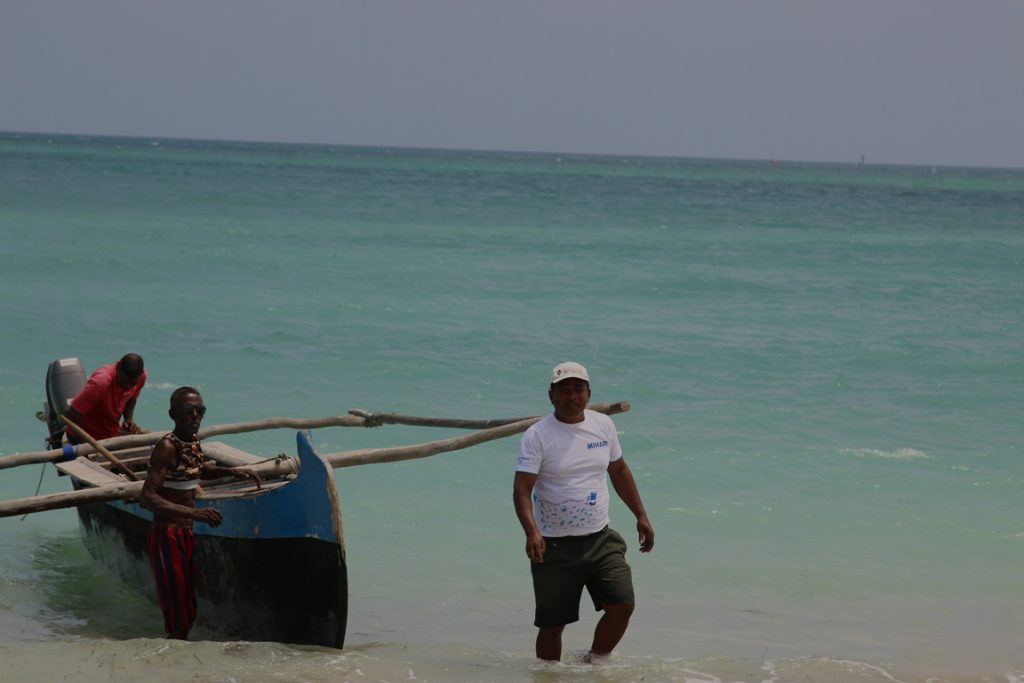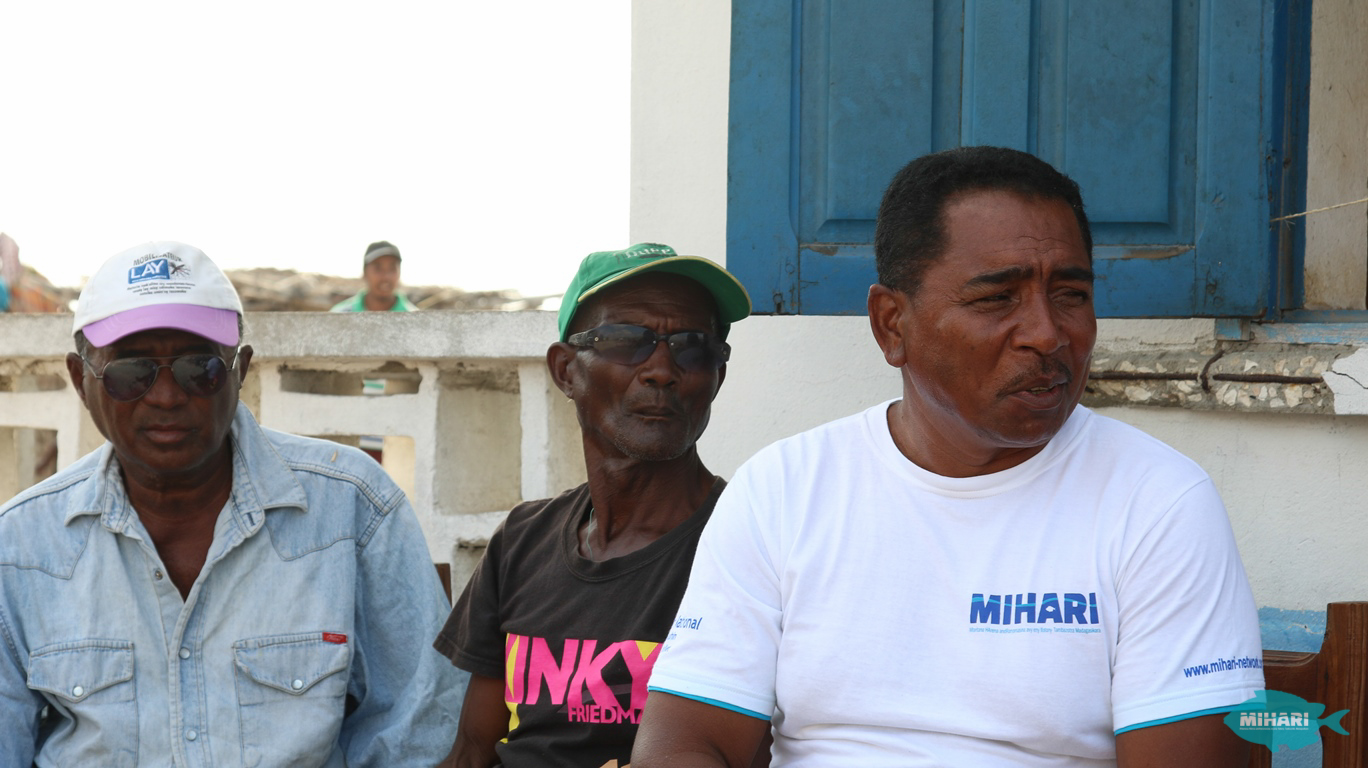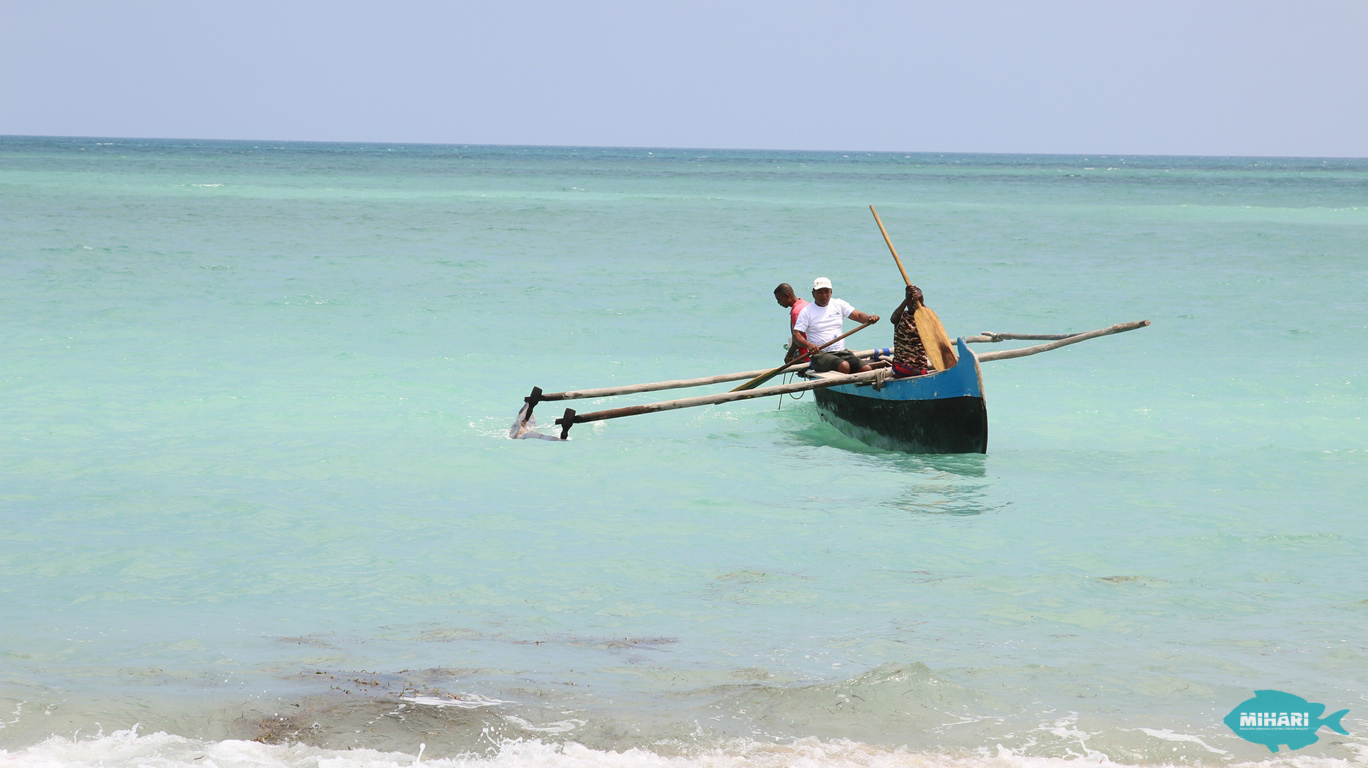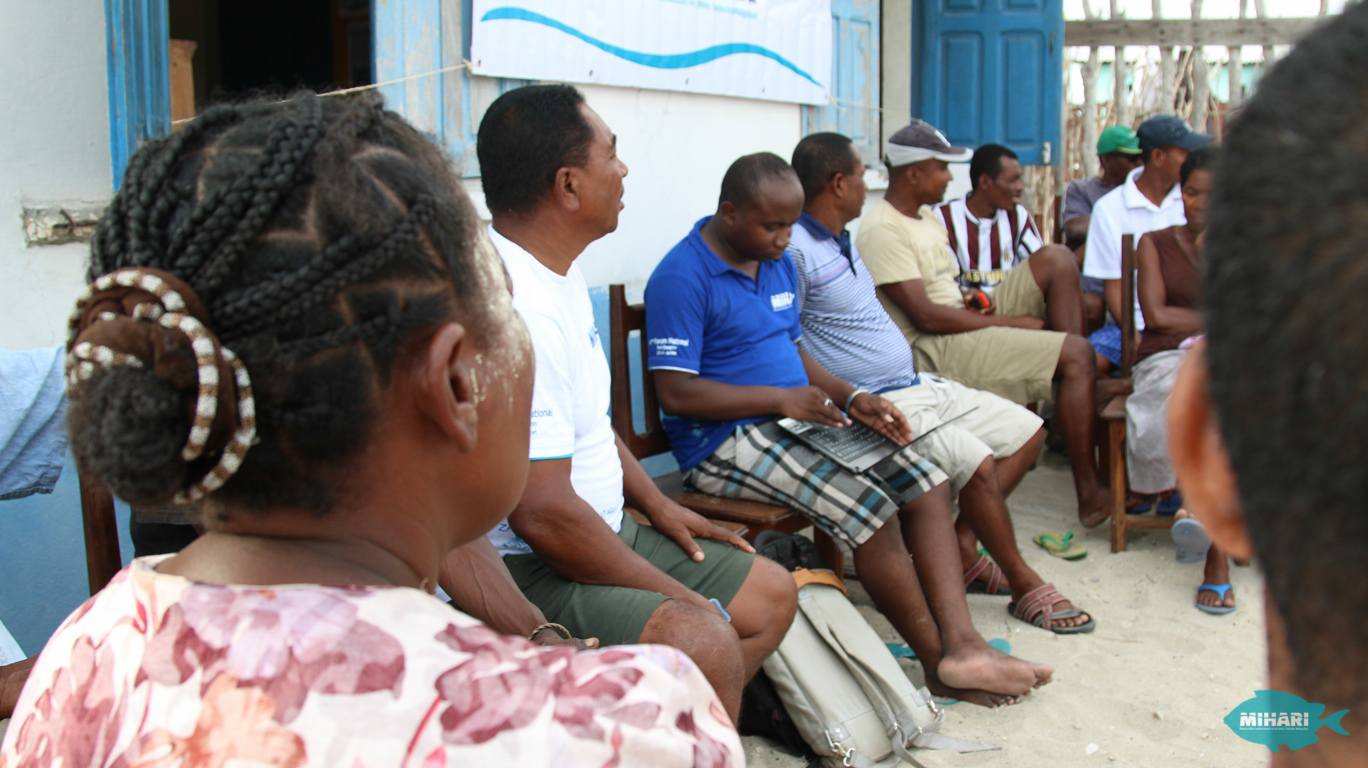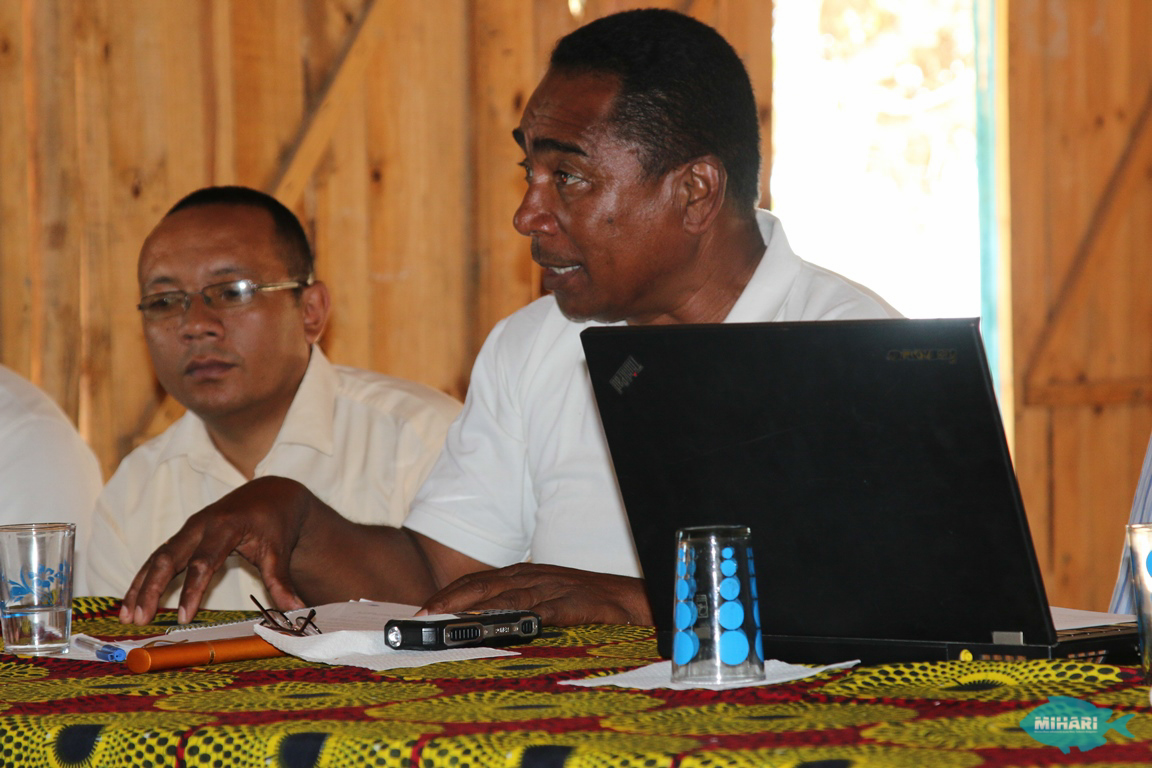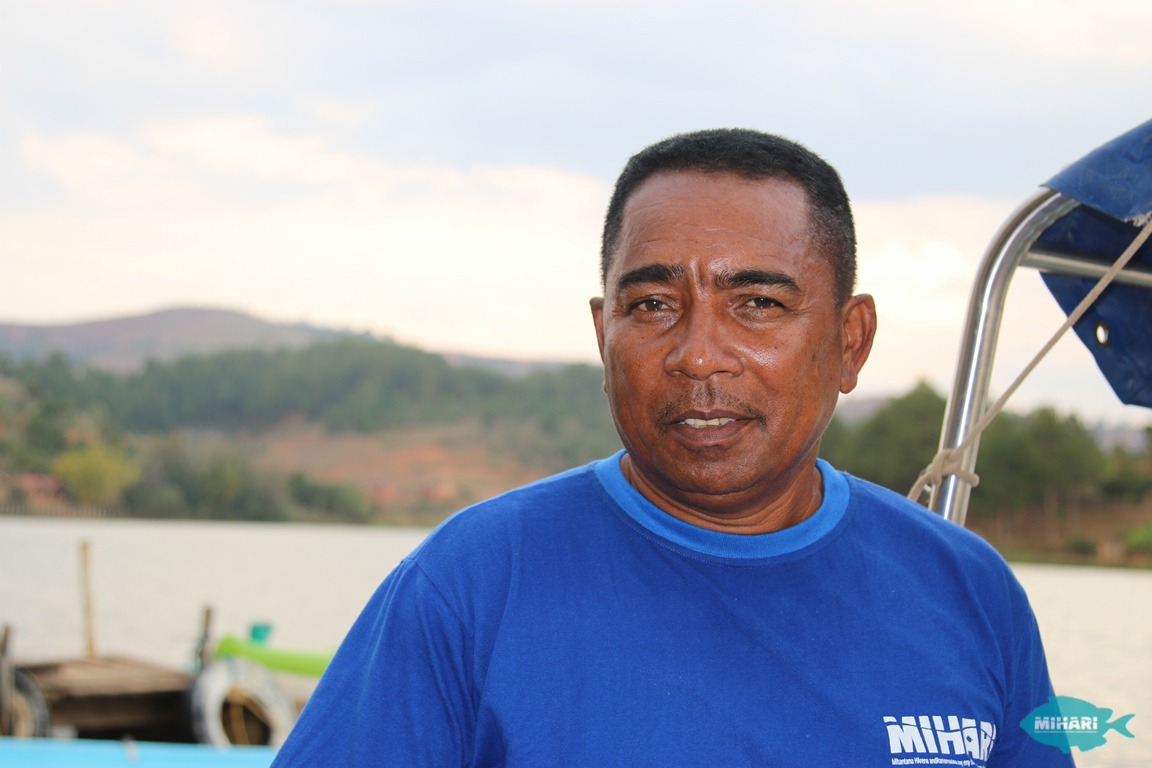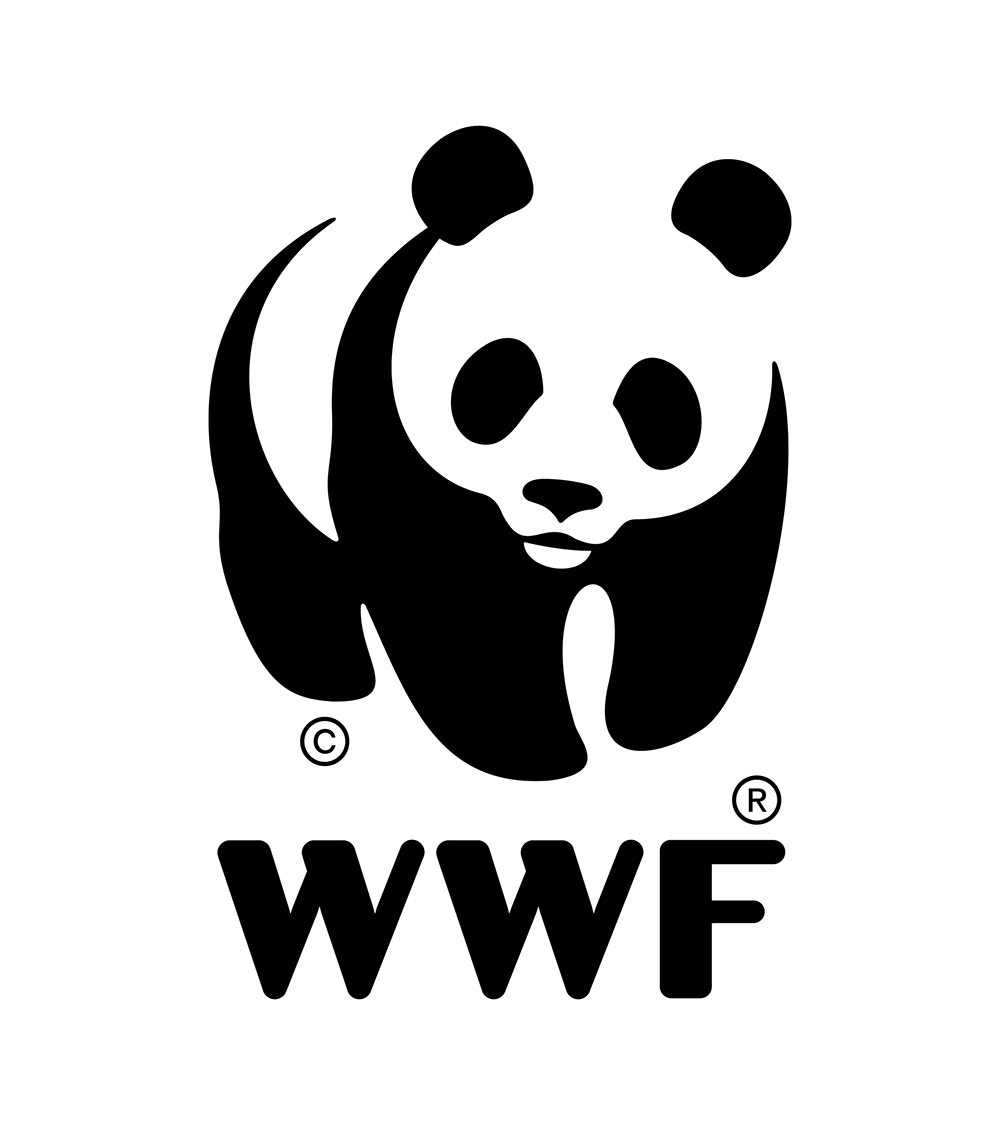Ocean Witness Hermany was born and raised in a small coastal village in southwest Madagascar and the ocean has always been a large part of his life. He’s now the president of MIHARI (Madagascar’s network of Locally Managed Marine Areas), a position of importance and responsibility as over 17% of Madagascar’s seas are currently under local management. Today we share his story.
You grew up in a small coastal village, so you must have many early memories of the ocean. What can you share with us about your earliest memories?
I recall the first time my father brought me with him when he went fishing, I was eight at that time, and we saw a tremendous marine gastropod! It was a huge and bright red snail, and I was absolutely fascinated by it. I will never forget that moment.
What does the ocean mean to you today?
The ocean means a lot to me. When I was a fisherman, it was my office, and I used to go to work there every day. I also love it for the blessings it gives us, and for the fascinating ecosystems it contains. My journey with marine conservation began over ten years ago. I joined the management association for FIMIMANO, the LMMA (Locally Marine Managed Area) that includes Anakao, Madagascar, because I wanted to become more involved in protecting our marine resources
So you’ve seen the ocean from different perspectives: as a child, as a fisherman and now as a marine conservationist. What changes have you witnessed in the ocean?
Besides destructive fishing and overexploitation, one of the biggest changes I have seen in my life is an increase in the destruction of coral, and I know that this is partially due to climate change. I am worried about the decline of these crucial ecosystems because that will affect our catches, and our livelihoods and families depend on these catches.
“I strongly believe in the benefits of working together to protect our marine resources. By working together, Madagascar’s small-scale fisheries can become sustainable.”
And what do you do to personally (or as a community) contribute to changing this in a positive way?
I strongly believe in the benefits of working together to protect our marine resources, and MIHARI helps us learn from each other and make decisions together. Having been president of the FIMIMANO LMMA for ten years, I wanted to help increase the effectiveness of LMMAs beyond my home region, so I ran successfully for president of the MIHARI Network in 2017. As the president of the MIHARI Network, I can communicate with regional and national authorities on behalf of Madagascar’s LMMAs. It will hopefully be far easier now for me to help ideas turn into actions, to advocate for change at a national level, and I will strive to develop the MIHARI Network and address the issues affecting fishing communities around the country.
One of the activities we do within the FIMIMANO LMMA is educating fishermen on why not to use destructive fishing techniques such as poisonous latex from the laro tree. This kind of fishing is causing the death of numerous fishes and other organisms in the ocean, and is completely unsustainable. It will be tricky to abolish destructive fishing practices with training and education alone, but hopefully we will witness fewer fishers in our community using these techniques. I think that the destructive fishing mostly comes from people who were not originally fishermen but have decided to start fishing because they cannot find work elsewhere. They don’t know the ocean, or the reasons why these practices are wrong.
17% of Madagascar’s seas are now under local management thanks to the growing LMMA movement, but we keep going. I know many challenges await the MIHARI Network, but I firmly believe that by working together, Madagascar’s small-scale fisheries can become sustainable.
Thanks for sharing your story! What do you want to say to other Ocean Witnesses?
I believe we need to support the communities that are financially dependent on the sea. That is the message I want to share with my fellow Ocean Witnesses. We need to support the creation of alternative livelihoods and education opportunities to give more people more options, and we need to stop the damage to marine ecosystems caused by destructive fishing practices.
If we can do all this, then there’s a chance that our fish stocks will not be declining as much as they are now, and that future generations will be able to live sustainably.
About Hermany
Hermany Emoantra Manahadraza was born and raised in the coastal village of Anakao in southwest Madagascar. His family are Vezo, the traditional fishers of the area, so the ocean has always been a large part of his life. The relationship that Vezo people have with the ocean starts from birth, with parents often placing the placenta of their newborn into a shell and throwing it into the ocean, believing that this will prevent sea sickness. Vezo children are also taught to fish from a young age, and Hermany was no different. Hermany is now 56, has a wife and six children, and many years of fishing under his belt, but he is now also the president of MIHARI – Madagascar’s network of Locally Managed Marine Areas.
